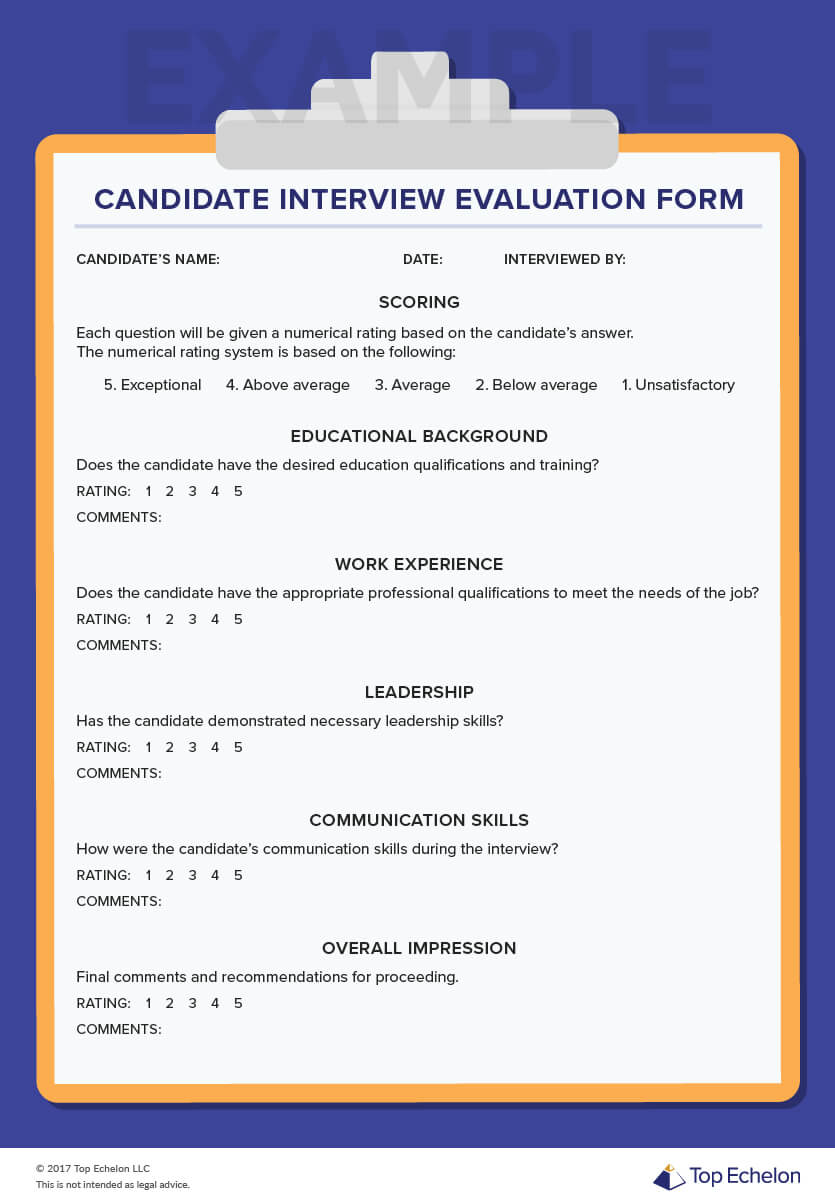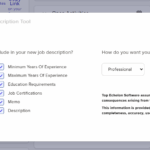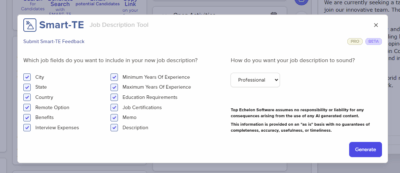[et_pb_section fb_built=”1″ _builder_version=”4.16″ global_colors_info=”{}”][et_pb_row _builder_version=”4.16″ background_size=”initial” background_position=”top_left” background_repeat=”repeat” global_colors_info=”{}”][et_pb_column type=”4_4″ _builder_version=”4.16″ custom_padding=”|||” global_colors_info=”{}” custom_padding__hover=”|||”][et_pb_text _builder_version=”4.16″ background_size=”initial” background_position=”top_left” background_repeat=”repeat” global_colors_info=”{}”]The first step in recruiting is to source applicants from your candidate pool. Once you’ve caught the interest of several strong candidates, you need to determine top contenders. An efficient candidate evaluation process can help you hone in on talent.
Candidate evaluation goes beyond a simple assessment. Assessments focus on objective, measurable data. Evaluations also include your impressions of the candidates, including their personalities and qualifications.
It can be difficult to stay objective while interviewing candidates. We’re humans, and we naturally form opinions based on our own experiences.
It’s important to stay focused on the client’s needs when sourcing talent. Setting up the framework for a strong candidate evaluation process can help you and your client be objective. Using evaluations, you form impressions about each candidate with the same criteria.
How to evaluate interview candidates
For an interview candidate evaluation to work, you need to prepare. Learn how to rate interview candidates according to your client’s most valued recruiting goals. Speak with your client to discuss the criteria needed for the position before the interview process.
First, determine the most important criteria your client is looking for. Decide on the skills, qualities, and experience the candidate must have in order to do the job. About 10 items are good, but you can use more or less.
Define your hiring goals and get an understanding of the company culture. These details are important for spotting the right candidates. They will help you create questions and steer the direction of the interview.
Once you’ve laid out the parameters, create an interview scorecard. The scorecard defines how you rank candidates. Use the same scorecard on every candidate for a job order.
During the interview, use the scorecard to rate the candidate’s answers. Your list of questions should help you get to know the candidate. Develop a rating system and give each candidate’s answers numerical values.
Take notes about candidate answers on the interview scorecard. This helps you weigh candidate answers side-by-side. You can add your scorecards and notes to your recruiting software to easily compare candidates.
You might also give candidates a work trial activity to test their aptitude. For example, if the job requires writing skills, ask for a writing sample related to your industry.
Interview rating scale
To create an effective candidate evaluation process, use a numerical rating system to rank applicants. A rating scale helps you evaluate candidates fairly. Each candidate interviewed is measured against the same metrics.
Rank the candidate’s qualifications according to their answers during the interview. Each time you ask a question, listen carefully to the candidate’s reply. Rate the answer by how well it fits the client’s needs and take notes on your impressions.
An interview rating scale usually consists of the numbers one through five. One is the lowest score, and five is the highest. For each question, rank the candidate’s answer as one of the following:
- Unsatisfactory
- Below average
- Average
- Above average
- Exceptional
After the interview, you can total the points to see which candidate scored the highest. And, you can compare individual questions to find out who ranked the highest in certain areas.
Ranking interview candidates
Once you interview candidates and fill out the interview scorecards, you can rank their performance. Ranking interview candidates will help you hone in on who is the best fit for your client.
There are several things you can rank when looking at candidate evaluations. Use the following details to review candidates and extend a job offer:
Drive and initiative
Is the person a self-starter? Look for a candidate that is motivated and interested in growing professionally. Get specific examples of times they put in extra effort at previous positions.
Meets performance expectations
Ask for examples of accomplishments to see how the candidate impacted their previous or current employers. Look for signs of upward growth.
Comparable to the client’s needs
See if the candidate’s past experiences align with your client’s open position. This could indicate if the candidate will be able to transition into the new role.
Experience and educational background
Make sure the candidate meets the client’s experience and education requirements. This is especially important when certifications are necessary, such as a candidate having a nursing license during a nurse manager interview.
Problem-solving skills
Find out if the candidate knows how to solve job-related issues. They need to be able to develop a plan and execute it successfully.
Management and organization
Have the candidate list the names, titles, and responsibilities of previous jobs. Ask how the candidate handled their most difficult projects.
Leadership
Has the person helped others become successful? You need a candidate that can work with others. Get specific examples of the candidate working with and leading a team.
Character
Does the candidate have strong character traits such as integrity, honesty, and openness? Ask situational questions to see if the candidate’s values align with the client’s. Save these questions for the end of the interview when the candidate is most comfortable.
Evaluation sheet for interview candidates
An evaluation sheet for interview candidates is a form that helps you assess applicants. The form gives you a way to compare impressions.
Questions on the evaluation sheet can guide the interview. This helps you stay focused throughout the interview. Each job order should have a unique set of questions.
Here is an example of an evaluation sheet for interview candidates:
[/et_pb_text][/et_pb_column][/et_pb_row][/et_pb_section]









